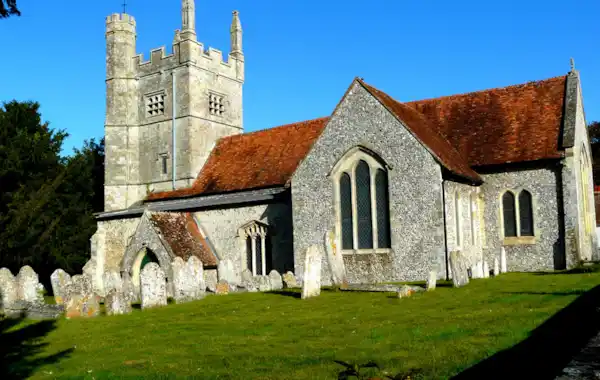How can parish registers help you trace your family history? What genealogy information can you learn about your ancestors from the baptism, marriage and burial records that have been kept for centuries across the British Isles? Dig into the parish registers to find out more with Helen Tovey's guide & further tips by Stuart Raymond on using parish registers for local history research too. Over the centuries, right down to the present day, parish priests
Parish registers guide: quick links
- Parish registers: an introduction
- Parish registers in 3 easy steps
- How can parish registers help you trace ancestors?
- When did parish registers start?
- Where can I find parish registers?
- Indexes, transcriptions and digitised images: what's best?
- Will I find Latin in the parish registers?
- Why it's important to learn about your ancestor's parish
- What about non-parish registers? Why can't I find my ancestors in the parish registers?
- What about other parish registers?
- How to use parish registers for local history research
- Start your Family Tree Plus free trial
Parish registers: an introduction
Over the centuries, right down to the present day, parish priests record details of the baptisms, marriages and burials that occur in their church in the parish registers. It is these records that provide us with the information we need (names, dates and places) to try to take our family trees back further (before the start of the civil registration records of births, marriages and deaths, which approximately began in the mid-1800s across England, Wales, Scotland and Ireland).
Parish registers don’t note as many details as the civil (birth, marriage and death) registers do, and unfortunately some of the historic registers may have become lost or damaged, but despite all this they are a mine of information that is vital for your tree.
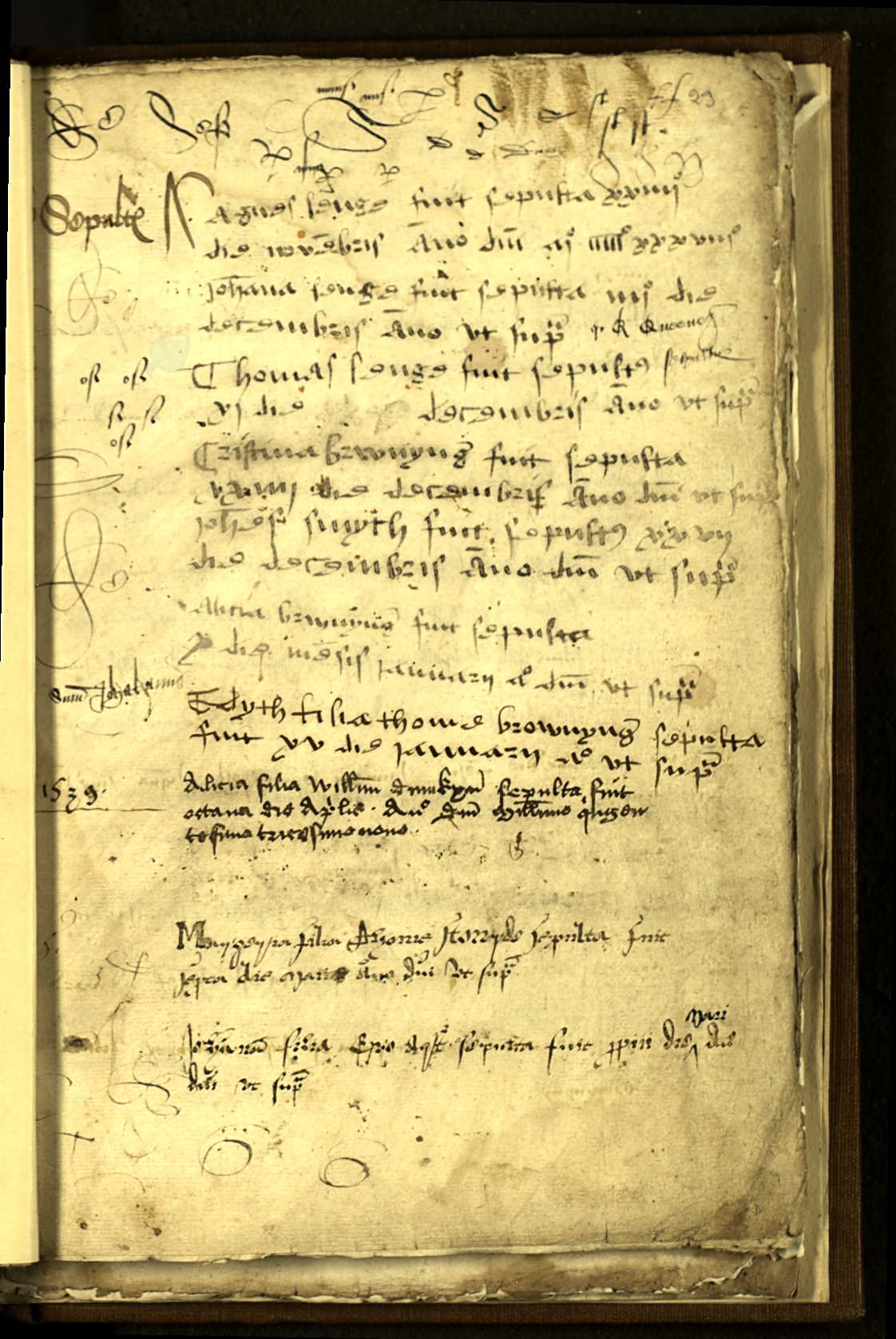
Above: a beautiful full colour scan of an early register page dating from December 1538 on Ancestry. Registers had been kept in some parishes prior to 1538, but this had not been mandatory
Using parish registers in 3 easy steps
1. Look online first: Every month more and more parish registers are coming online, so check back regularly for the latest releases if you don’t find what you need right away.
2. Check the originals: indexes and transcriptions are extremely useful, meaning that you don’t have to wrestle with old handwriting, but do, where possible, check back with the originals.
3. Cross-check your details, wherever possible: As you research back in time, you will notice that parish registers include fewer details, which can make it harder to identify which ancestor by a certain name is yours. Time used making sure that you have the right person will be well spent, however. Keep a note of instances where there are several people by the same name and baptismal date in your ancestor's parish, so that you are aware of the situation when you may confuse a namesake.
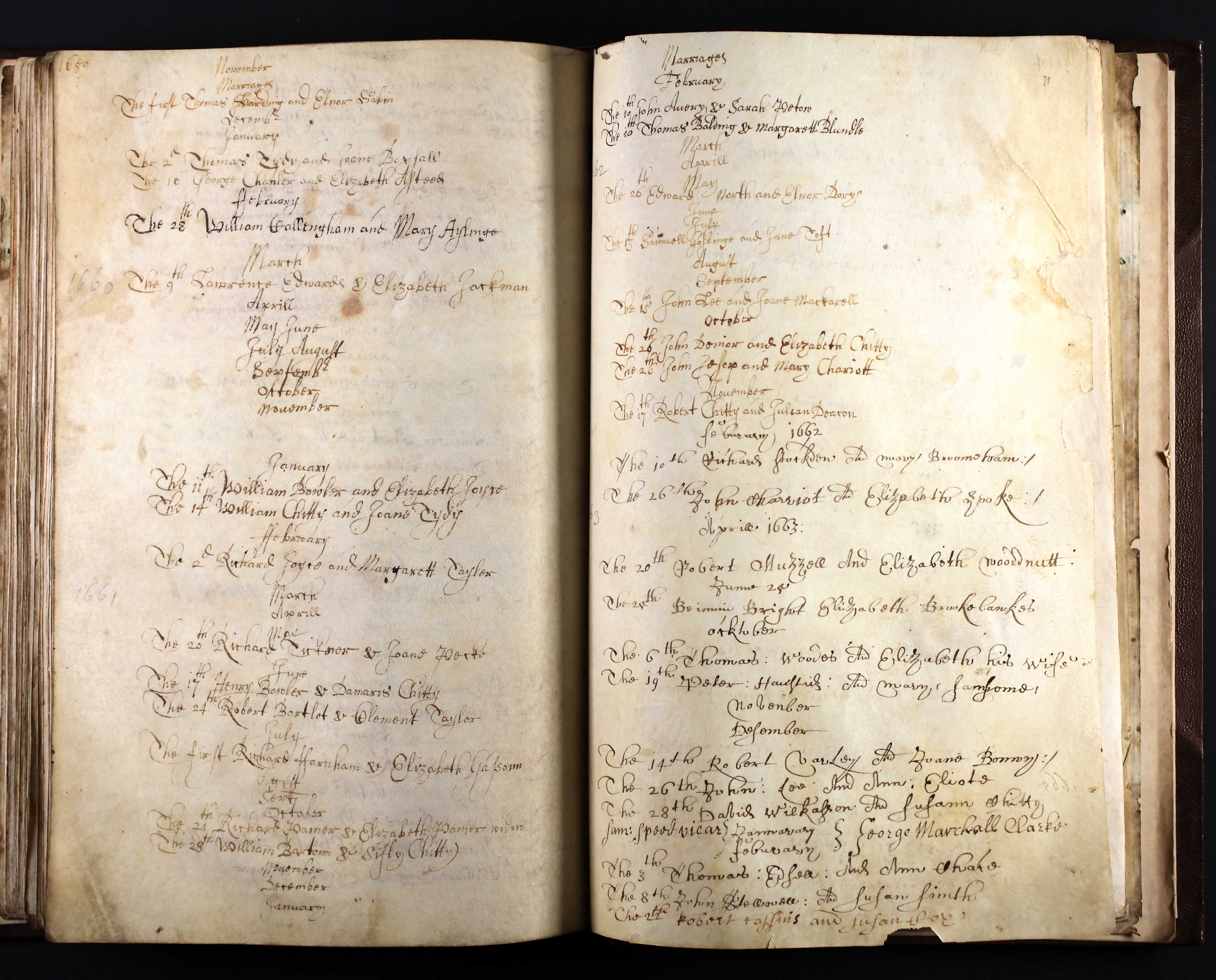
Above: a marriage register from 1660.
How can parish registers help you trace ancestors?
Trace back centuries: By using parish registers it's possible to trace your British Isles ancestors back as far as the 1600s, even 1500s! Usefully more and more parish registers are being digitised, so every year it is that little bit easier to trace ancestors in the records online.
People from all walks of life: Parish registers are unique in that no other collection recorded the entire population over such a long period. Parish registers have included the baptisms, marriages and burials of men, women and children from all walks of life, century after century.
More detailed records in more recent centuries: As to be expected, not all the records have survived the passage of time. In addition, over the years the nature of the parish registers has evolved, meaning that they have become more detailed and comprehensive too.
Very limited details were recorded, for instance just the father’s name at a baptism, or just the deceased’s name at a burial. There was no format or required level of detail – so it was at the priest’s discretion what to record.
When did parish registers start?
- The requirement for parish registers to be kept in parishes in England and Wales was introduced on 5 September 1538, when Vicar General Thomas Cromwell introduced legislation requiring each parish priest to record the baptisms, marriages and burials of their parishioners, noting the details down once a week after church on Sunday.
- Parish registers for Scotland (earliest record 1553) also date from the 16th century.
- For Ireland John Grenham cites the earliest surviving parish registers as being from the 1680s.
- For the Isle of Man, parish registers date from 1598.
- And for the Channel Islands, parish registers date from 1540 with Jersey's earliest records, followed by those for Guernsey which start from the 1560s.
Let's look at some key dates for parish registers over the past centuries. These dates are important as they have a direct impact on the sorts of parish register details you will find about your ancestors.
Parish registers timeline
Date: 1538
The requirement for parish registers to be kept in parishes in England and Wales was introduced on 5 September 1538.
What change was introduced?
Vicar General Thomas Cromwell introduced legislation requiring each parish priest to record the baptisms, marriages and burials of their parishioners, noting the details down once a week after church on Sunday. The records so created were to be kept in a coffer with two locks (the priest holding one key; the church wardens the other). These early records were very often on loose sheets of paper.
Scant details were recorded, for instance just the father’s name at a baptism, or just the deceased’s name at a burial. There was no format or required level of detail – so it was at the priest’s discretion what to record.
Parish registers for Scotland (earliest record 1553) also date from the 16th century; and for Ireland John Grenham cites the earliest surviving documents as being from the 1680s (see http://familytr.ee/irishrecords).
Date: 1598
What was change was introduced?
Registers in England and Wales were required to be made on parchment rather than paper, and were to be bound into books. Only the entries from 1558 onwards had to be copied into the books, so the details in the registers for those first twenty years – 1538-1558 – may not have been transferred to the new books. At this time, the end of the century, it was also required that from now on transcripts of the registers were made and sent to the Bishop annually at the end of the year – Bishops’ Transcripts. (Note that the end of the year at this time is March, with the start of the new year on Lady Day, 25 March).
Date: 1754
What was change was introduced?
Lord Hardwicke introduced the requirement for separate registers of marriages to be kept (prior to this date, baptisms, marriages and burials were all recorded in the same register), comprising of printed forms – with fields to be completed for: the signatures of the witnesses, bride and groom, the bride and groom’s marital status, and their parish of residence. Hardwicke also introduced banns books – in which marriage banns were to be recorded.
Quakers and Jews were granted permission to marry in their own places of worship, but in the main Nonconformists had to marry in the parish church.
Date: 1812
What was change was introduced?
From January 1813 separate registers of baptisms and burials were kept. The new register books had pre-printed forms.
Date: 1837
What was change was introduced?
With the introduction of civil registration in England and Wales from 1 July 1837 marriage registers were kept in duplicate, one copy filed by the parish priest and one copy sent to the secular registrar.
Learn more about the history of parish registers, including the fines introduced and implemented at various points for not obeying the rules, and taxes on these key life events at certain periods in history too, at http://familytr.ee/parishhistory
Date: 1855
Up to 31 December 1854, parish registers in Scotland will remain vital to your research; from 1 January 1855 civil registration was introduced.
Date: 1864
For Ireland, 1 January 1864 is the date on which vital life events (birth, marriage and death) were recorded; prior to that civil registration for Protestant marriages only had been introduced in 1845.
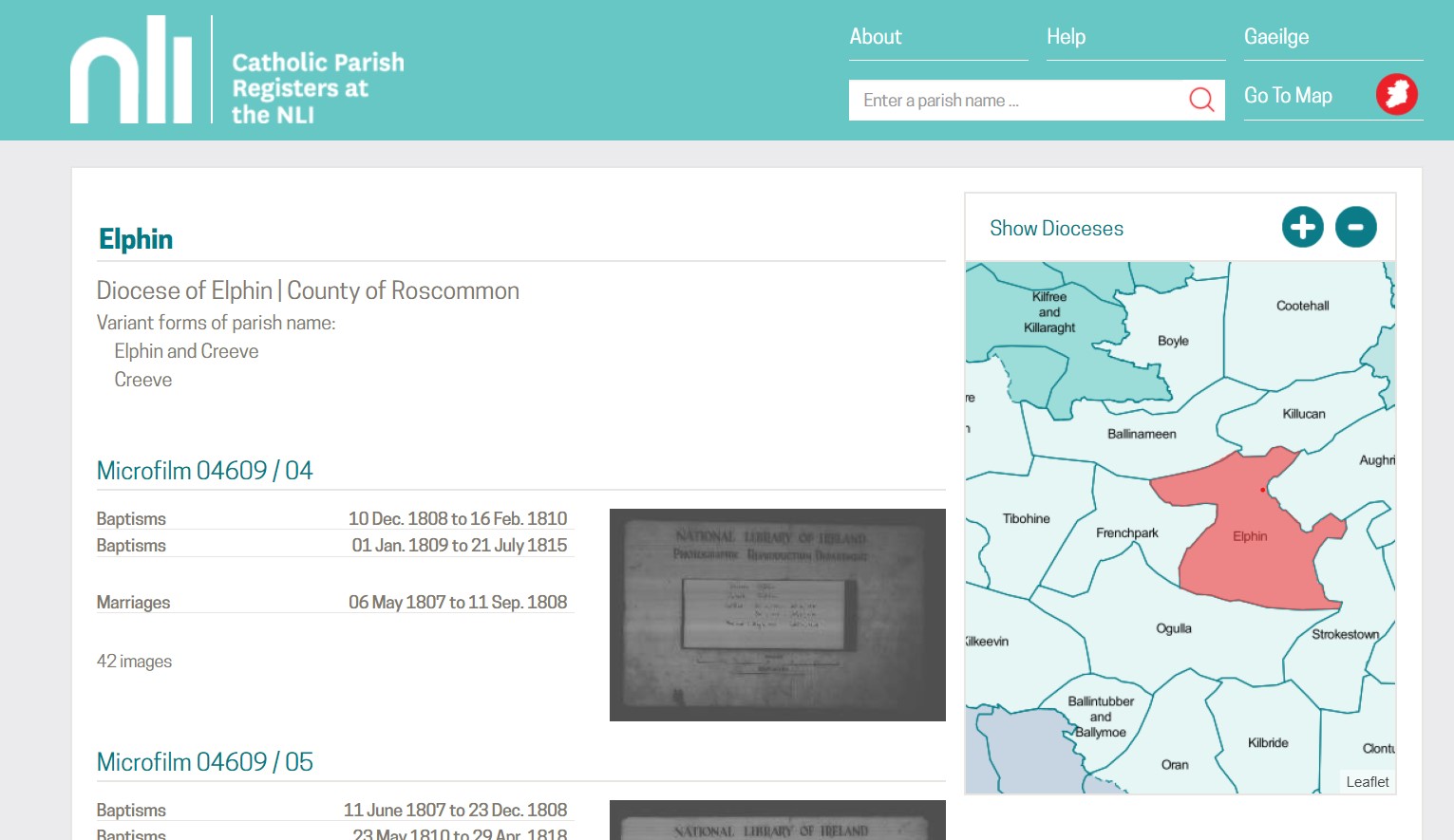
For Ireland, when talking about parish registers it is the Roman Catholic ones that will be relevant to the majority of our ancestors. At registers.nli.ie you may search by parish and view scans online free of charge. Note that Latin remains in usage in Roman Catholic registers.
Where can I find parish registers?
All the main genealogy sites have large and still growing parish register collections (Ancestry, FamilySearch, Findmypast, MyHeritage and TheGenealogist). Many family history societies provide online databases for their area via the members-only areas of their websites; while the Family History Federation’s National Burial Index covers much of England and Wales (and is available via Findmypast). Work-in-progress volunteer site FreeREG.org.uk supplies free transcriptions for parishes in England, Scotland, Ireland and Wales.
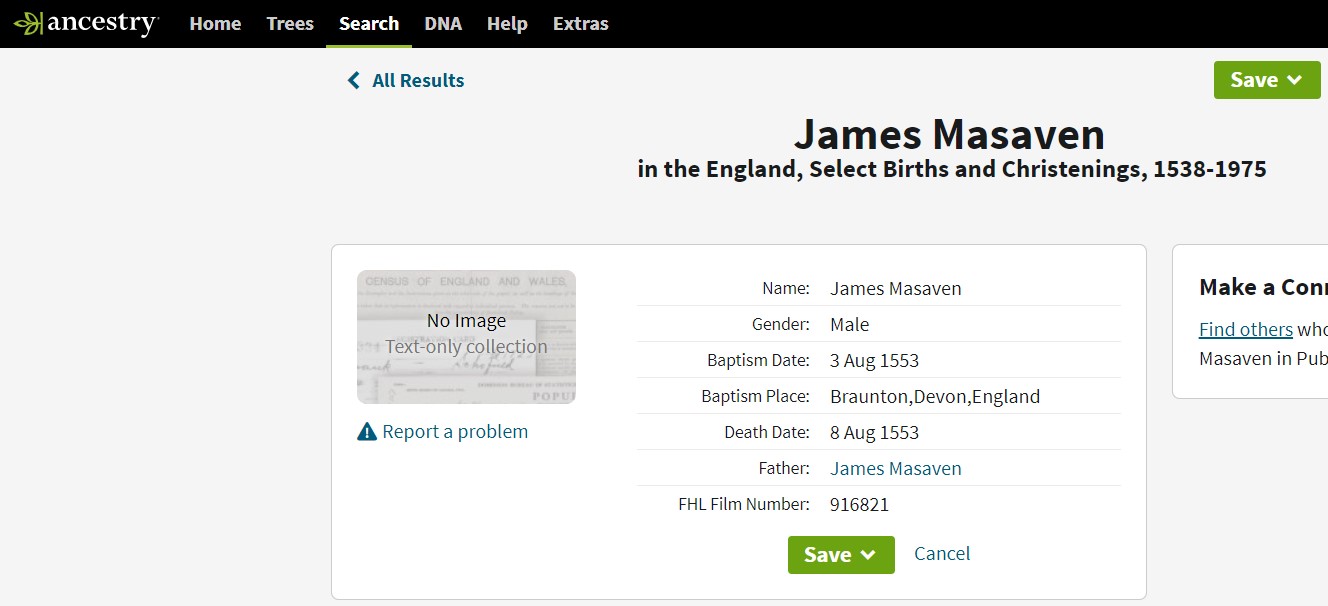
Not all the parish record information you find will be scanned originals; many comprise databases of transcriptions, such as this example from Ancestry above.
Online & in archives: Parish registers can be found in various locations, both in archives and online, although it is very rare to be able to handle the original registers themselves nowadays. Usually your access will be via microfilms and increasingly online.
Think about which country you are searching within: If you are seeking ancestors somewhere in the British Isles, and are hoping to use parish registers to help you find them, it's worth noting that both the original record keeping, and the websites via which we can access parish registers that have been digitised today, are different among England and Wales, Ireland and Scotland. This guide covers useful resources and steps for finding parish registers for each of England and Wales, Ireland and Scotland.
Scotland: The registers (Old Parish Registers) for Scotland are the simplest to use as the indexes and the images are all online at ScotlandsPeople (£) although the sometimes sparse details provided in the earlier ones can be frustrating. In 1872 a ‘Detailed list of the Old Parochial Registers’ that had been deposited for safe-keeping (following the introduction of civil registration in 1855) was created.
Ireland: For Ireland try the indexes at Roots Ireland (£) – further registers’ details are being added to this site on a regular basis. See too the Church Records at Irish Genealogy.
England & Wales: For England and Wales there are several useful sites, though none with comprehensive coverage yet, so see if your area is covered before subscribing to a site: try Ancestry.co.uk (£), findmypast.co.uk (£) and TheGenealogist.co.uk (£).
The FamilySearch Research Wiki page on England Church Records, which lists whereabouts indexes and images of parish registers can be found is well worth visiting and bookmarking.
Free online: Free online there are also a wide range of register details on FamilySearch and some on www.freereg.org.
Look hyper locally! It’s also well worth searching the internet by the church or village name, as some communities have created online indexes of their parish registers. It you find such a site for the place you’re after you may have struck gold!
Indexes, transcriptions & digitised images. What's best?
The parish register records you find online may be:
• high quality scanned copies of originals;
• greyscale copies of digitised microfilm;
• scanned pages of typed indexes, often created in the 1800s and 1900s;
• transcriptions.
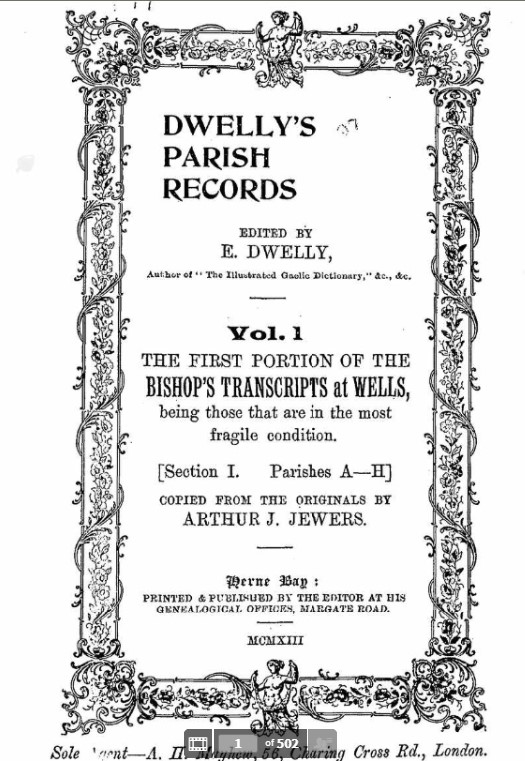
Above: note that sometimes the digitised images you will be studying will be digitised copies of earlier typed transcriptions of the records. Note that this example shows Bishop's Transcripts. A Bishop's Transcript is the copy of the parish register that was made and sent to the local diocesan office. BTs can be very useful, for instance, if the original parish registers have not survived. When searching for parish registers, keep an eye out for Bishop's Transcripts too.
The major family history websites are increasingly providing access to digitised parish registers. Sometimes there are indexes of parish registers, sometimes there are transcriptions (ie typed up versions of (often) just some of the details recorded), and sometimes there are digitised images of the original parish register entries. It is the latter (the digitised images) that you are ideally trying to track down for your ancestor - allowing you to view the historic record of your ancestor's baptism, marriage or burial.
Search tips:
- The transcriptions can be very helpful, particularly when used in conjunction with a digitised image, as the handwriting on the early records can be a challenge to read.
- If you find just an index entry for your ancestor, make a note to yourself to track down the digital image in the future. The digital image is likely to include more details for your family tree and will enable you to verify more readily whether you have found the correct parish register entry.
Will I find Latin in the parish registers?
Latin was officially discontinued in Church of England parish registers from 1733 (but continued in Roman Catholic parish registers). When studying parish registers you will find that it fell out of use much earlier than 1733 in many instances.
Why it's important to learn about your ancestor's parish
When doing family history, often we find ourselves researching in a location that may be unfamiliar to us. Use the FamilySearch Wiki to find facts about, for instance, the survival rate for parish registers for your ancestor's place, and where the digitised parish registers for that place can be found online. The Wiki covers places from all over the globe; try searching for the parish name, in case you are in luck. If not, search for the county name - to at least get information at that level to help you.
- Explore the FamilySearch Wiki.
This map covers England and Wales and very usefully allows you to search on numerous different types of administrative units, one of which is parishes. Search by your parish name of interest. Note whether there are several other parishes sharing the same name; this can be useful, to save you unwittingly confusing them. Note, too the names of the neighbouring parishes - your ancestor may move a mile or two down the road, and end up being recorded in a different parish.
- Explore the FamilySearch Map.
For England, Wales and Scotland, the go-to resource for working out when the parish registers for your parish of interest began has long been The Phillimore Atlas and Index of Parish Registers (available as a book and on some subscription websites).
While these resources show the starting date, of course damage may have occurred to the records resulting in missing pages or faded handwriting, for instance. So for each parish you search, check whether there are any such segments of the registers that haven’t survived the passage of time. This will both reassure you that you are doing nothing wrong if you can’t find your ancestor in the register. More importantly it will also stop you assuming that a person is your ancestor, simply because they have the correct name, whereas your ancestor’s entry may no longer exist.
What about non-parish registers? What if I can't find my ancestor in the parish registers?
Parish registers are the records of the established church, and of course many of our ancestors may have worshipped elsewhere - this is increasingly the case as we move through the 1700s and into the 1800s - as Nonconformist worship became more popular.
For instance, you may have Nonconformist ancestors on your tree, in which case the non-parochial records on BMD registers (£) – also found on TheGenealogist (£) – can help you.
In addition, your ancestor may have been working overseas, serving in one of the far-flung reaches of the former British Empire, and so have been baptised, married or buried in an Anglican church overseas. See for instance TheGenealogist (£) or Ancestry's (£) UK, Foreign and Overseas Registers of British Subjects, 1628-1969.
For Ireland the majority of our Irish ancestors weren’t members of the Church of Ireland, they were Roman Catholic, so a key resource for tracing Irish RC parish records are the National Library of Ireland, FamilySearch (1740-1900), and RootsIreland (£) as above.
For records that are not yet available online, see the relevant local archive.
Extracted from parish registers guide in the February 2021 issue of Family Tree magazine.
What about other parish records?
Note that the parish registers of baptisms, marriages and burials are just some of the records that were kept by the parish. To build up your knowledge of family history and find out further clues about your ancestors' lives it is well worth exploring the full range of parish records. These include the records relating to the administration of the social fabric of the community - such as poor law records, vestry minutes, churchwardens' accounts and much more. See the long-standing recommended read on the topic, The Parish Chest by W E Tate.
How to use parish registers for local history research
Stuart A. Raymond explains how to use parish registers as a rich source of information when researching the local history of your ancestor's surroundings.
So you have made some progress in constructing a pedigree, and in tracing your family’s history. You have used sources such as the census, civil registers, and probate records to discover relationships, to trace the work that your ancestors did, and to identify the places your ancestors lived. You have discovered that tracing your family has made history come alive for you. And in all likelihood you have become interested in the places and communities where your ancestors lived and worked.
You have become aware that your ancestors shared and helped to shape the human experiences of some rural parish, market town, or great city. The stage has been set for you to develop your interest in local history.
So how can the documents underpinning family history be used to tell us more about the communities our ancestors lived in? Parish registers list vital events - baptisms, marriages and burials - normally giving names and dates, but sometimes much more than that – occupations, places of residence, and a wide range of miscellaneous comments.
Using parish registers to learn about occupations
The latter are frequently ignored by family historians, but there are so many of them that all those found in Wiltshire parish registers have been edited by Steven Hobbs in his Gleanings from Parish Registers (Wiltshire Record Society, 2010). If you are fortunate enough to find a register which lists the occupations of those named, then you have the opportunity of examining how members of the community earned their living, and how that changed over the years.
Using parish registers to estimate population growth/decline
The vital events themselves are essential sources for tracing pedigrees, but they are also important for estimating the population of the parish they cover. Counting the numbers of baptisms, marriages and burials in parish registers provides valuable demographic evidence, and may reveal the episodes of plague and crises of subsistence that most communities suffered from time to time. Such episodes may be remarked upon in the register. For example, the register at Wylye (Wiltshire) tells us that there was an outbreak of plague in 1603 which resulted in the burial register not being kept up.
Text extracted from an in-depth article on local history by Stuart A. Raymond, published in the August 2022 issue of Family Tree. Download your copy here.
Stuart Raymond is the author of 'Researching Local History: Your Guide to the Sources', published by Pen & Sword.
Need help with more records? Read our article on Birth, marriage and death records.
Image credit: © Mike Cattell, Attribution 2.0 Generic (CC BY 2.0)







